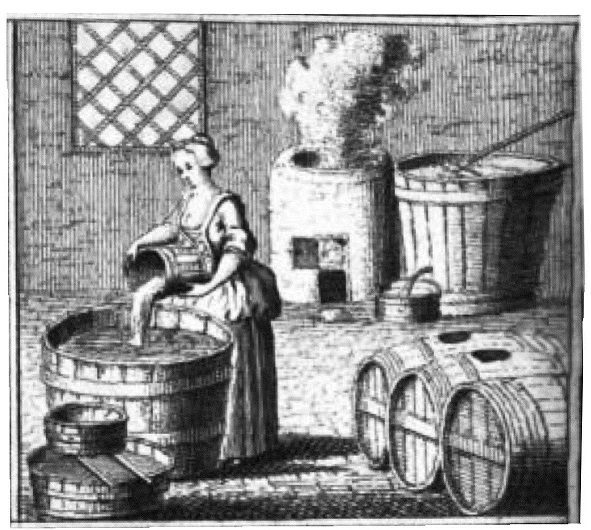history
Loin du Vietnam
Now here’s a great find: a 1967 movie about the War on Vietnam, directed by Joris Ivens with contributions by Alain Resnais, Claude Lelouch, Jean-Luc Godard, William Klein and Agnes Varda, showing the war from the North Vietnamese point of view. Back then Renata Adler didn’t like it, but what can you expect from a movie reviewer for the New York Pravda?
(Via.)
The Normans — Marjorie Chibnall

The Normans
Marjorie Chibnall
191 pages including index
published in 2000
So the Normans eh? Bunch of Vikings who plundered the English and French coasts for a while, before the king of France made an offer they couldn’t refuse and they settled in what became Normandy, named after them, to defend France against, well, other Vikings. Traditionally this is supposed to have happened in 911 CE. unlike other Scandinavian invaders attempting to set up stock in the countries they raided, these Vikings not only survived but thrived, creating essential a new people, the Normans and a new country, Normandy, in the process. Not only did Normandy become a powerful duchy, more or less indepdent from the kingdom of France, from there on William the Conqueror went on to take over England and Wales and invade Ireland, while other Normans went on to the Mediterranean and found kingdoms in Sicily and Antioch.
What the Normans managed to do looks a whole lot like what earlier “barbarian” invaders like the Goths did to the Roman empire, grabbing a piece of it and settle there in return for protection against other “barbarians”. But, as Marjorie Chibnall explains in her book, the Normans were “a product, not of blood, but of history”, not so much a people on the move as in the “classic” — and quite likely never to have happened in that form — people movements of Late Antiquity. Instead, it was a tightly knit group of warriors loyal to a specific ruler which took over and created Normandy, mixing with and ruling over the original populations. It was similar ties between ruler and noblemen that would later enable William the Conqueror to win the English kingdom.
Female brewers in early modern Holland

Here’s an interesting history paper by Marjolein van Dekken about female beer brewers in Holland during the fifteenth-seventeenth centuries:
As an important part of daily nourishment, women had always produced beer at home and for their own household. However, in Holland from the beginning of the thirteenth century beer production for the general market commenced. In the developing cities more and more labour was divided among specialised craftsmen. Professional breweries were established and the beer industry became a serious trade. In several cities of Holland like Haarlem, Delft and Gouda, the brewing industry played a major economic role during the fifteenth, sixteenth and seventeenth centuries. Even after the industry’s decline from the second half of the seventeenth century, breweries remained important for the local economy in those cities.
The full article is available as a Word document. It’s part of a project that looks at women’s work in the early modern period:
Foreign travellers who visited the Dutch Republic in the early modern period were impressed by the remarkable prominence of Dutch women in public places. Dutch women were reportedly independent and capable entrepreneurs, conducting business either in their own name, or that of their absent spouses. To what extent these frequently repeated observations reflect historical reality is still not clear. There is evidence that the economic success of the Dutch Republic is reflected in the position of women on the labour market. Two opposite hypotheses can be formulated. According to some historians female labour market participation in the Dutch Republic was lower than in neighboring countries. The economic prosperity and the high standard of living enabled the practical realization of the ideal of domesticity. Many women could afford not to work, and withdrew from the labour market as early as in the seventeenth century. According to the second, opposite hypothesis female labour market participation in the Dutch Republic was higher than elsewhere. Dutch gender norms were not very strict, women performed paid work on a large scale, and thus contributed to the increase of income and the standard of living and to the economic success of the Dutch Republic.
Things change
Some new horrible history I learned about today: forty years ago today In New Orleans, thirtytwo people were murdered through arson, in what was the largest mass murder of LGBT people in US history:
Just before 8:00p, the doorbell rang insistently. To answer it, you had to unlock a steel door that opened onto a flight of stairs leading down to the ground floor. Bartender Buddy Rasmussen, expecting a taxi driver, asked his friend Luther Boggs to let the man in. Perhaps Boggs, after he pulled the door open, had just enough time to smell the Ronsonol lighter fluid that the attacker of the UpStairs Lounge had sprayed on the steps. In the next instant, he found himself in unimaginable pain as the fireball exploded, pushing upward and into the bar.
It’s a horrible, upsetting piece of history, depressing even, but what is important is that it is history and things are getting better, as Joe Belknap Wall argues:
Forty years ago, when I was five, I was destined to be a victim, but things changed. We spoke up, sat in, made our points. Things changed.
Thirty years ago, when I was fifteen, I was destined to be a marginal citizen, but things changed. A disease came out of nowhere and shook the world, even as our President did nothing and said nothing, even as the population cracked jokes and shrugged it off and the preachers waved their crosses to stir up the hate, but we spoke up, stood fast, and made people see. Things changed.
[…]
Today, I am forty-five, and I am still a citizen without full protection under the law, but—
Today, I can marry in my state, and receive the protections accorded to the rest of my neighbors. If I fall victim to a crime driven by hate, it will be investigated. Few, if any, people will laugh and point and make a mockery of my basic human dignity. I am no longer required, by the dominant cultural norm, to be ashamed of who I am, and the people who once felt empowered to fuel the fires of hatred and intolerance are the ones on the run. The last of the churches built on foundations of hate are being deserted by their children, who were not raised with the old faith that had them accepting an injustice because they were told to, and the louder they get, the more they demonstrate that it’s all just a death rattle, destined to go silent as the older generations fade away, and the churches may yet turn back to the message of love.
When I feel that hot rush of rage, reflecting on what happened forty years ago today, I want to say “WE ARE COMING FOR ALL OF YOU,” but I don’t need to. The future is coming, and daylight and information wipe the world clean of those old, ugly falsehoods and make fools of those who used to get away with promulgating that fetid, soul-killing bullshit. There are miles to go on the way to a just, open, loving world, but we have come farther than ever before.